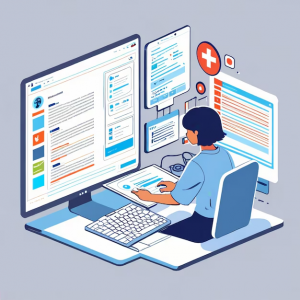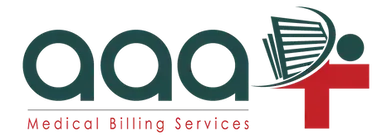
Medical billing and coding are crucial components of the healthcare industry, serving as the backbone of the revenue cycle for healthcare providers. Without accurate billing and coding, healthcare facilities would struggle to process insurance claims, secure reimbursements, and maintain cash flow. For many healthcare providers, managing these processes efficiently is essential to ensuring financial stability while delivering quality patient care.
At AAA Medical Billing Services, we understand how complex medical billing and coding can be, and we are committed to making the process easier for healthcare providers. In this comprehensive guide, we’ll break down the essentials of medical billing and coding, explaining how they work together and why they are essential for healthcare practices.
What is Medical Billing?
Medical billing is the process of submitting and following up on claims with insurance companies to ensure that healthcare providers receive payment for services provided to patients. It involves translating healthcare services into bills that are sent to insurance companies, Medicare, Medicaid, or directly to patients. Medical billing specialists are responsible for:
- Collecting patient information, including insurance details.
- Creating and submitting claims to insurance companies.
- Following up on denied or unpaid claims.
- Sending bills to patients for any remaining balances after insurance.
Medical billing plays a vital role in a healthcare provider’s revenue cycle. Without efficient billing, providers may face delays in payments or potential financial losses due to errors or rejected claims.
What is Medical Coding?
Medical coding is the process of transforming healthcare diagnoses, treatments, services, and equipment into universal medical codes. These codes are used by insurance companies to process claims and by healthcare organizations to keep track of patient care. Coders rely on standardized coding systems, such as:
- ICD-10 (International Classification of Diseases, 10th Edition): Codes that classify diseases and health conditions.
- CPT (Current Procedural Terminology): Codes used to describe medical, surgical, and diagnostic services.
- HCPCS (Healthcare Common Procedure Coding System): Codes for services, procedures, and equipment covered by Medicare and other payers.
Medical coders assign the appropriate codes based on the information provided in patient records, ensuring that claims are submitted with the correct details, which is essential for accurate billing.
How Medical Billing and Coding Work Together
Medical billing and coding are interdependent processes that work together to ensure that healthcare providers are reimbursed for the services they provide. Here’s how the process typically works:
- Patient Registration: The billing process starts when a patient registers at a healthcare facility. This includes collecting patient details, verifying insurance, and determining coverage.
- Medical Coding: After the patient receives care, medical coders review the patient’s medical records and assign appropriate diagnosis and procedure codes based on the services provided.
- Billing Creation: Using the codes provided by the medical coder, the billing department generates a claim. This claim is sent to the patient’s insurance company or Medicare/Medicaid for reimbursement.
- Claims Submission: The biller submits the claim to the insurance company through electronic or manual processes. The insurance company reviews the claim, verifies the services provided, and determines how much of the total bill will be covered.
- Payment Processing: Once the insurance company approves the claim, it sends the payment to the healthcare provider. Any remaining balance not covered by insurance is billed to the patient.
- Follow-Up: In cases where claims are denied or underpaid, the medical billing team follows up with the insurance company to resolve the issue and ensure payment is received.
This seamless coordination between medical billing and coding ensures that healthcare providers are reimbursed for their services while complying with legal and regulatory requirements.
Why Are Medical Billing and Coding Important?
The importance of medical billing and coding cannot be overstated. These processes are critical to the functioning of the healthcare system for several reasons:
1. Accurate Reimbursement
Medical billing and coding ensure that healthcare providers are paid accurately for their services. Without precise coding and timely billing, practices risk underpayment or delayed payments, which can lead to financial instability.
2. Compliance with Regulations
Medical billing and coding help healthcare providers comply with healthcare regulations, including HIPAA (Health Insurance Portability and Accountability Act) and Medicare/Medicaid requirements. Accurate coding and billing also reduce the risk of audits, fines, or penalties from regulatory bodies.
3. Reduced Billing Errors
Errors in coding or billing can lead to claim denials, delayed payments, or financial losses. By employing skilled medical coders and billers, healthcare providers can minimize the risk of mistakes, ensuring claims are processed quickly and accurately.
4. Improved Patient Care
When medical billing and coding are handled efficiently, healthcare providers can focus on delivering quality patient care rather than spending time resolving billing issues. Moreover, accurate medical records help in better patient diagnosis and treatment.
5. Streamlined Revenue Cycle Management
A well-managed billing and coding process helps streamline the entire revenue cycle, allowing healthcare facilities to receive consistent payments and maintain a healthy cash flow. At AAA Medical Billing Services, we help healthcare providers optimize their revenue cycle, ensuring smooth and timely reimbursements.
Common Challenges in Medical Billing and Coding
Medical billing and coding can be complex, and healthcare providers often face several challenges that can impact their financial stability. Some of the most common challenges include:
1. Coding Errors
Incorrect coding is one of the most common reasons for claim denials. Errors such as using outdated codes, mismatched codes, or incomplete codes can lead to delays or claim rejections.
2. Claim Denials
Claim denials can occur for various reasons, including incorrect patient information, coding errors, or non-covered services. Managing denials efficiently is critical to ensuring timely payment.
3. Insurance Verification
Verifying insurance coverage before services are rendered can be time-consuming. Failing to verify coverage can result in claim rejections or unexpected out-of-pocket expenses for patients.
4. Keeping Up with Regulatory Changes
The healthcare industry is constantly evolving, and regulatory changes—such as updates to ICD-10 or CPT codes—can be challenging to keep up with. Staying updated is essential for ensuring compliance and avoiding penalties.
5. Time-Consuming Process
For small healthcare practices, handling billing and coding in-house can be time-consuming and labor-intensive. Many providers opt to outsource their billing and coding to services like AAA Medical Billing to save time and focus on patient care.
Why Outsource Medical Billing and Coding to AAA Medical Billing Services?
At AAA Medical Billing Services, we provide expert medical billing and coding solutions to ensure that healthcare providers can focus on what they do best—delivering excellent patient care. Here’s why outsourcing your billing and coding to us can make a difference:
- Accuracy: Our team of certified coders and billers is trained to handle complex cases with accuracy, ensuring that your claims are processed correctly the first time.
- Compliance: We stay up-to-date with the latest healthcare regulations and coding changes, ensuring that your practice remains compliant with industry standards.
- Efficiency: We manage the entire billing process, from claims submission to follow-up, allowing you to receive timely payments and minimize claim denials.
- Revenue Growth: By optimizing your billing and coding processes, we help your practice maximize revenue and reduce administrative burdens.
Conclusion
Medical billing and coding are essential processes that ensure healthcare providers receive payment for the services they deliver. By understanding how these systems work together, healthcare providers can improve their revenue cycle, reduce errors, and stay compliant with regulations.
At AAA Medical Billing Services, we specialize in providing comprehensive medical billing and coding solutions that take the complexity out of the process. Our expert team is here to help you manage your claims efficiently, increase your revenue, and focus on what matters most—patient care.
Contact us today to learn more about how AAA Medical Billing Services can support your practice’s billing and coding needs.
